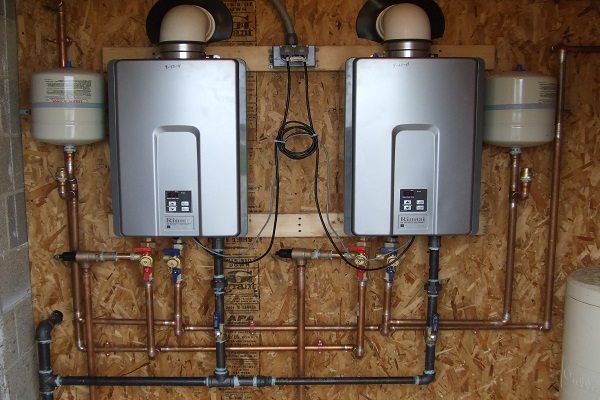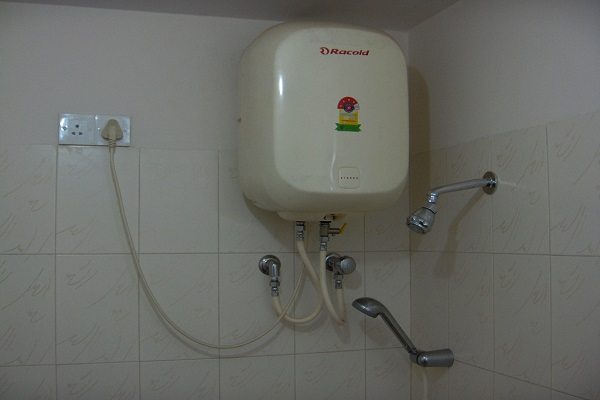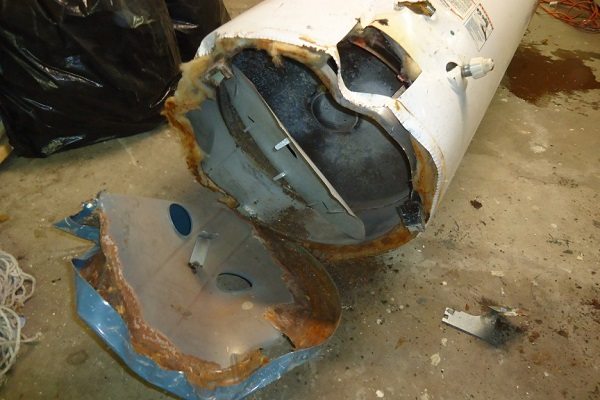Most people have absolutely no idea if their water heater is going to fail or not. But there are a few signs which you can watch out for.
It is easy to avoid the damage and disruption which come with a failing water heater by simply looking for any one of the four indicators discussed below. If you see any of these aspects, you can be certain that your water heater is on its last legs:
Age
https://www.flickr.com/photos/chrisandhilleary/159821463
It is of paramount importance that you know just how old your water heater is. You can find the age by checking the serial number, which will be somewhere on its upper portion. The serial number usually contains the date when it was manufactured as well.
But it doesn’t look like a regular date that you would see on any document. Instead, it has a complex code, which you can read up about online and learn to understand. Once you do that, you will be able to figure out when the heater was manufactured in a short amount of time.
Generally, water heaters which are more than ten years old have run the course of their life, and it is time to make an upgrade. If you have the water heater in a location where you don’t mind the damage if it leaks, you can wait longer for it to stop working before you replace it. But this is not recommended.
On the other hand, if it is in a location where it can cause damage to something else, you should consider replacing it the moment it hits 10 years of age or even earlier, if you start noticing any of the other symptoms on this list.
Rusty water
https://commons.wikimedia.org/wiki/File:Handyman_project_to_disassemble_hot_water_heater_9.JPG
If you find rusty water coming out of your heater, or even worse, if it is only coming from the hot side of the piping inside your home, it may just be a sign your heater is rusting away from the inside and will start leaking very soon.
But if you are using galvanized piping for the heater, you may be dealing with just rusty pipes. One prudent test to avoid replacing a perfectly working water heater is to drain some buckets of water from the water heater. By the time you’re on the third bucket, if the water is still rusty, it is likely that the fault lies with the heater and not the piping.
Noise and rumbling
As water heaters get older, sediment starts building up in the bottom of their tanks. As this sediment gets heated and then reheated, it eventually hardens. Whenever this happens, you can usually hear banging or rumbling sounds from the heater as it heats up. This is a sign that it is at the end of its life cycle. When you have a layer of hard sediment it usually means:
Less efficient: The heater starts using more electricity or gas to heat the water.
More damage: The additional time taken to heat the water causes more wear and tear on its tank, and causes more brittle metal which develops tiny holes and cracks. If you ever hear your water heater rumbling, just check for small leaks. If you can find any, perhaps it’s time to change your water heater.
Water around the heater
https://commons.wikimedia.org/wiki/File:Rinnai_water_heaters.jpg
If you find moisture around your water heater, it may just be because of a fracture in its tank or a small leak. As the metal of the heater continues to heat, it will expand as well, and if there are small fractures, water may start leaking from the tank too. Once the metal cools, the inner tank is going to stop leaking.
But before you replace your water heater, ensure there are no leaks in the tank’s connection or the fittings. Also, ensure the pressure/temperature overflow pipe is not leaking. If all the fittings and connections are dry, it might just be time to replace your heater.
If you are worried about your heater and have noticed any of the above signs, it is vital that you get in touch with a plumber right away or speak with a company which can service your water heater. Don’t wait for it to leak out completely. That could be unsightly, among other negative aspects as just mentioned.











